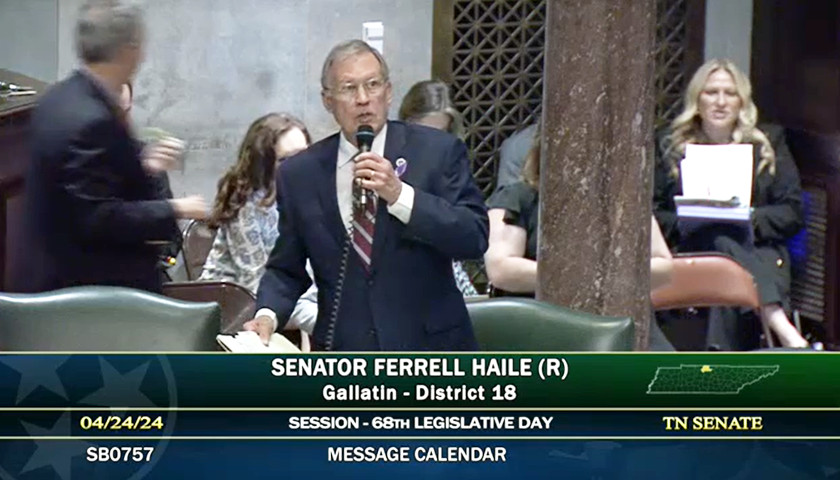by Jeff Hartline
Today, while millions of Tennessee voters are busy at work taking care of their families and contributing to the vibrant economy of the Great State of Tennessee, their elected Representatives and Senators are huddled in various offices and in their respective Chambers doing the business of the State itself.
This business involves listening to various entities and citizens and pursuing legislative remedies designed to make Tennessee a better, safer state. Bills are filed, co-sponsored, verified through legal departments, and started through the various sub-committees and committees for consideration prior to going to the Floor for a vote.
These processes are intended to be transparent, as evidenced by the requirements to place legislation on the General Assembly website and track the process of various legislative initiatives, to the point of televising live the video proceedings of the committee process and debates on the Chamber Floor.
For the most part, bills are filed with a clear statement of what the legislation is about, with a brief explanation of what the bill is designed to do. This is often referred to as the “caption” of the bill. The legal text of the bill then follows, usually in a linked PDF file.
Except when the bill is being filed as a “Caption Bill”. A “Caption Bill” is a bill filed as sort of a placeholder that can be changed by Amendment to pursue something completely different from the language originally filed. “Caption Bills” have been used by both sides of the political aisle over the years to sneak up on Members, hoping to catch the other side asleep and get legislation past initial committees without the fanfare reserved for controversial bills that are filed transparently.
Consider the following. Sen. Mike Bell, a reliable Conservative is the sponsor for SB1401, legislation that states in its original Caption that it “…increases from 21 to 30 the number of calendar days within which a person granted an order of protection may apply for a temporary handgun carry permit from the department of safety after an order of protection has been granted.”
This bill, the way it was filed, however, opens Title 39 of the Tennessee Code Annotated, allowing whatever that might come out of this legislation to be added to Tennessee’s laws so long as the ultimate Bill still fits within Title 39.
However, this description of the original intention of the legislation was apparently just a “placeholder”. This was in evidence last week when the Senate Judiciary Committee, Chaired by Senator Bell, met to discuss this bill and several others on the calendar. Oddly enough, when the bill was presented, an Amendment was presented that would “make the bill”. This is code for “what was filed was not really the bill, but the Amendment prepared and cleared by legal in advance is the bill”.
The Amendment which was then offered had nothing to do with the extension of a window of time from 21 to 30 days. Nothing at all. The Amendment had nothing to do with Orders of Protection. The Amendment instead seeks to alter an entirely different subsection of Title 39, one having to do with Posted Properties.
The proposed amended bill was not revealed or even described in the calendar so that people trying to decide whether to attend the hearing should do so. The proposed Amendment was not filed on the Legislative Website at any time prior to the hearing so that interested citizens might know about it before it came up for debate or a vote. The proposed Amendment was not posted to the General Assembly Website for a couple of days after it had already been argued and voted upon in the Committee.
In actuality, these type shenanigans are the rule rather than the exception. Shadow bills are constantly filed as “Caption Bills” in order to “hide the ball” from lobbyists, policy advocates, media and anyone else trying to pay attention to what the legislature is doing. One wonders why lawmakers on both sides of the aisle are constantly “gaming the system” in this manner.
While you may think we are being too harsh on Senator Bell, we understand that he was not the author of this lack of transparency. Honestly, Tennessee Spotlight wholeheartedly supports the amended bill. However, why was it necessary to keep such an amendment out of public view until time to be presented in committee?
We suppose it is possible that lawmakers would be “considering” certain legislation, but, unsure of whether the timing for such legislation is appropriate, file these “Caption Bills” just in case. (It is true that there is a cutoff date for bills to be filed in both chambers.)
On the flip side, such actions violate the constitutional intent of legislative transparency. These behaviors run the risk of opening up sections of the Tennessee Code Annotated for all kinds of Committee and Floor misdirection and misbehavior. By filing bills in this manner, average Tennesseans have little chance of being able to follow proposed legislation that affects them. They are prevented from keeping track of current changes to bills, especially when such Amendments are not placed on the website as they are given to legal, or when presented in Committee or even after they are voted on.
We believe Tennessee citizens deserve a more transparent process and that legislative “hide the ball” actions like this should cease immediately. Proposed amendments to bills, unless fixing minor issues or typographical errors should be filed and posted to the General Assembly Website as proposed amendments in advance of the final committee hearings on the bill. If major amendments have to be made, file them and continue the hearings on the bill for a week so that the public can be apprised of the proposed changes.
Therefore, in accord with the Tennessee Constitution’s encouragement for citizens to “instruct your Legislators”, we ask Senate and House Leadership to prohibit such legislative misbehavior and demand that Members present bills that they intend to work through the legislative process without having to “hide the ball”.
And if some argue that amendments are often offered “at the last minute”, we remind those asserting such that there were two different people in the Committee Room to give testimony, not against the “Caption Bill” on the agenda, but on the soon-to-be-offered amendment. How did these folks “know” about this amendment in advance?
Leadership should require that all proposed substantive amendment be allowed only after notice and after the proposed amendment has been posted at least a week on the General Assembly Website. That is unless the General Assembly chooses to run its business like the federal Congress, passing bills without proper notice that few have bothered to even read.
It ain’t a game to us and it certainly ain’t funny.
– – –
Jeff Hartline is the executive director of Tennessee Spotlight.
Photo “Jeff Hartline” by Jeff Hartline. Background Photo “Tennessee State Legislature” by Tennessee State Legislature.






Changing this would require self funded leadership with a spine plus integrity.
Currently, that is not present in Tennessee politics, anywhere.